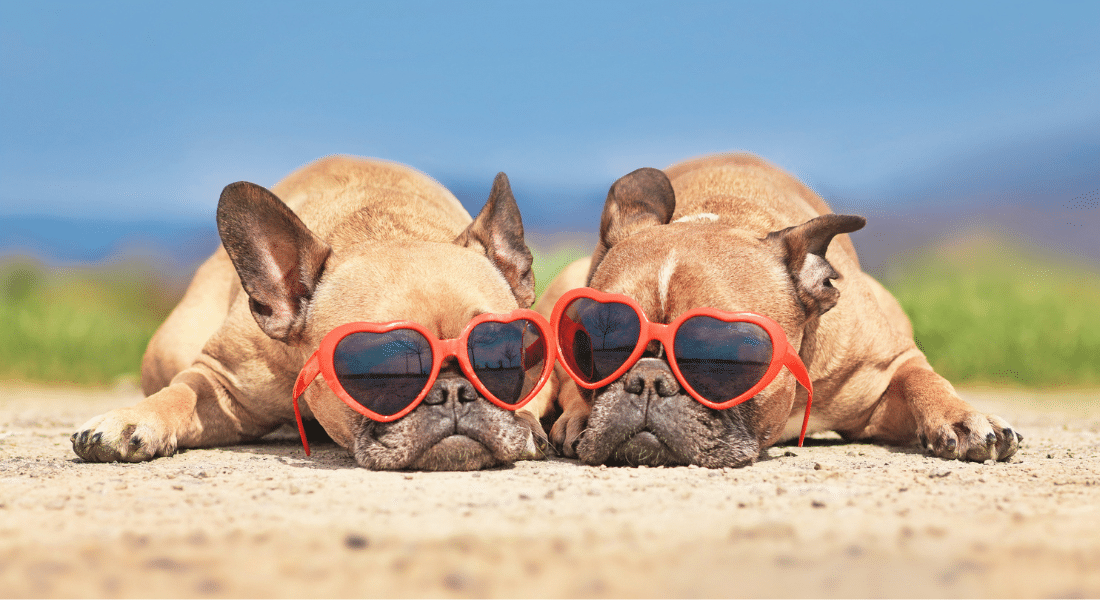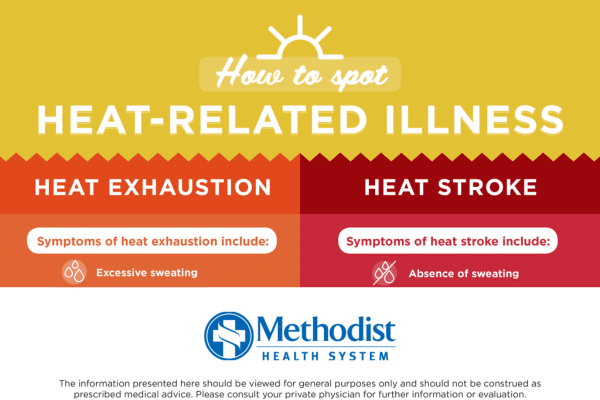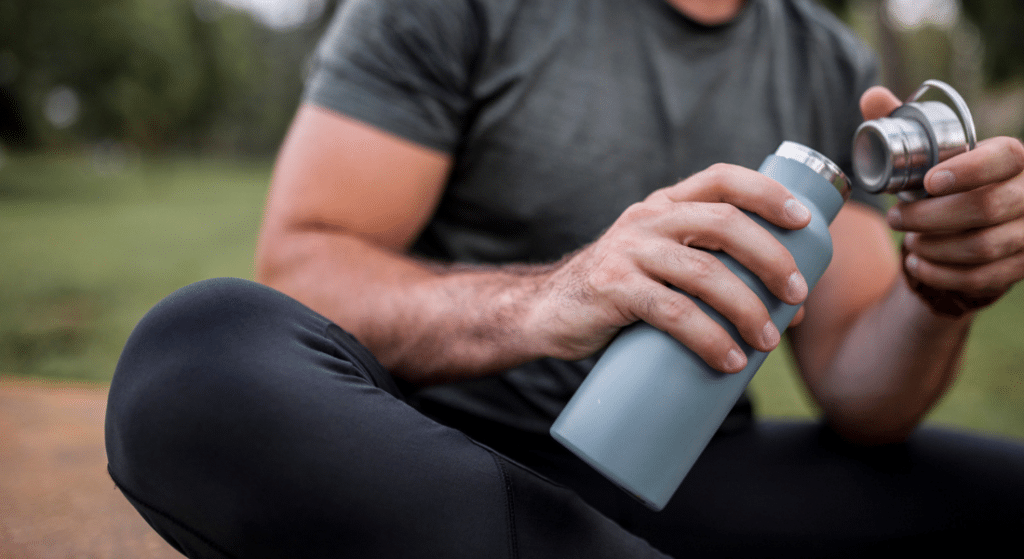The summer heatwave is making everyone miserable, but your heart may suffer the most when temperatures hit triple digits.
The number of deaths from cardiovascular disease can double or even triple when average daily temperatures reach or exceed 109 degrees Fahrenheit, according to a 2020 research paper published in Circulation, a journal of the American Heart Association (AHA).
“If you have heart disease, the extreme heat can add stress on your heart,” says Nasser Khan, MD, medical director of the structural heart program and director of the cardiology fellowship program at Methodist Dallas Medical Center. “It happens more so in the elderly.”
Dr. Khan says the risk of heart issues increases as you age because older adults are less able to regulate their body temperature. Sometimes, especially after spending so much time outdoors, they may not even realize they’re thirsty and dehydrated.
“That creates a lot of extra stress on the heart,” Dr. Khan says.
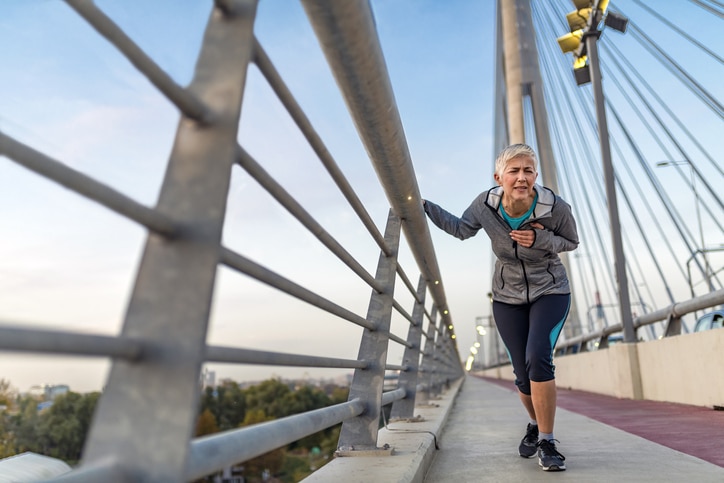
THE EFFECT ON THE BODY
When temperatures hit the triple digits, the heart must work much harder than usual to cool the body. As blood vessels dilate, the heart pumps more blood at a faster rate to increase circulation at the skin’s surface, which releases some of the heat.
Water and electrolytes are lost through sweat, too, and if you’re not hydrating properly, it can cause problems with blood pressure, heart rate, and vascular function. In fact, the European Heart Journal published a study last March that suggests drinking water could reduce the long-term risks of heart failure.
As the water content in our body decreases, our sodium levels rise, and according to the researchers’ findings, that raises our risk of heart failure.
“Dehydration is the main problem,” Dr. Khan says. “The bottom line is if you get dehydrated, you can have heat exhaustion, and then the extreme thing to watch for is heatstroke.”
Symptoms of heat exhaustion include sweating, headache, dizziness, a rapid pulse, muscle cramps, nausea, and vomiting, he says. If it’s not treated, it can progress to heatstroke, a life-threatening condition. Click on the graphic above to learn more about telling the difference between heatstroke and heat exhaustion.
“With heatstroke, people have an altered mental status, slurred speech, and their skin can still be warm and dry but not sweating, which happens because the body loses the ability to regulate its temperature. People might seem like they’re having a stroke, but it’s actually caused by being overheated,” Dr. Khan explains. “It’s an extreme situation, and you have to call 911.”
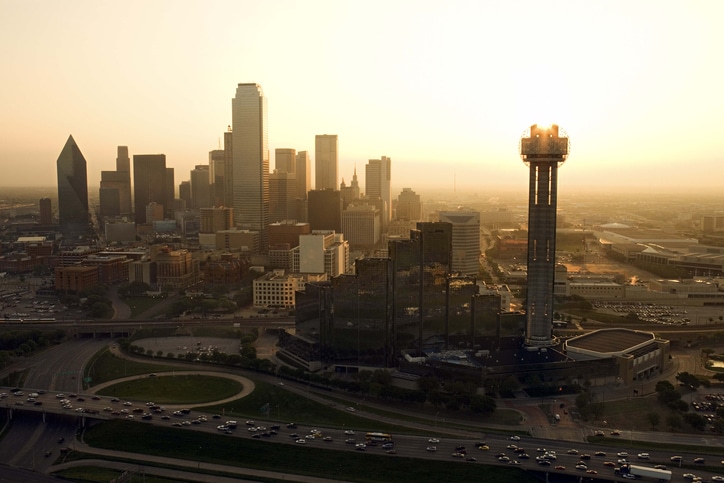
POLLUTION MAKES IT WORSE
The AHA has also found that the risk of heart attacks may double when high air pollution accompanies scorching heat waves.
Experts at the University of Washington conducted a decade-long study involving more than 6,000 participants that proved the link between exposure to fine particulate matter and a more rapid progression of coronary atherosclerosis — the buildup of plaque in an artery — and a greater risk of events like heart attacks.
“Air pollution can make existing heart disease worse. That is an established fact,” Dr. Khan confirms. “Especially if you live in urban areas, like Dallas, that could be an issue.”
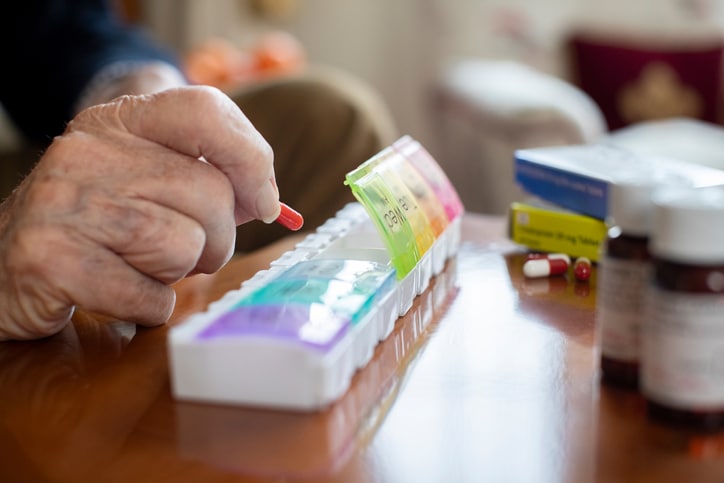
DRUGS CAN DEHYDRATE, TOO
Some medications may also make you more dehydrated.
“For example, many people who have heart failure accumulate fluid in their legs and lungs, so we give them diuretics to alleviate that, but because diuretics, by design, make you urinate, you get dehydrated more easily,” Dr. Khan explains.
But, he warns, that does not mean you should stop taking your medications.
“It’s important to keep on taking the heart medications, but follow the simple rules of staying cool and staying hydrated,” Dr. Khan says.

PROTECT YOURSELF FROM HEAT
As the blistering summer heat continues, it’s important to take precautions. Dr. Khan advises you to stay inside whenever possible, check the forecast before making plans, and wear clothes that will help you keep cool.
“Try to avoid going out during the hottest time of the day, probably around noon to late afternoon,” he says. “Take breaks in the shade or a cooler place, and don’t linger outside. Stick with clothes made of cotton and other breathable fabrics that allow for good airflow. Stay active, but exercise indoors.”
The most important thing, he reminds patients, is to drink plenty of water. The body’s response to dehydration is to send signals of thirst, but that sensation may dull with age, so even if you’re not feeling thirsty, keep a full water bottle on hand.
“The other mistake is drinking iced tea or coffee,” he adds. “Those drinks contain caffeine, which is a diuretic. That will only make you more dehydrated in the long run. Plain old water is the best option.”

